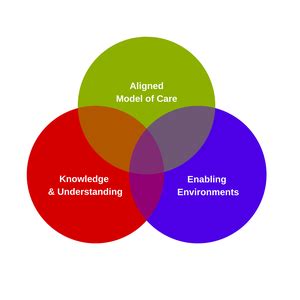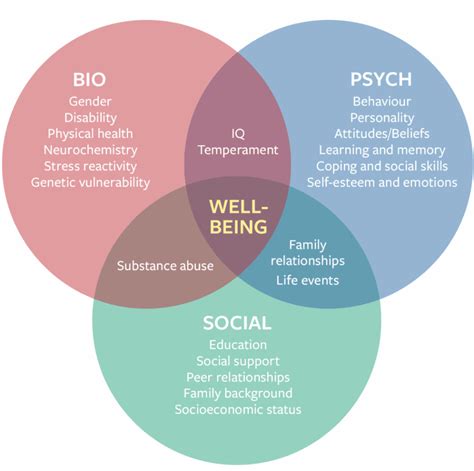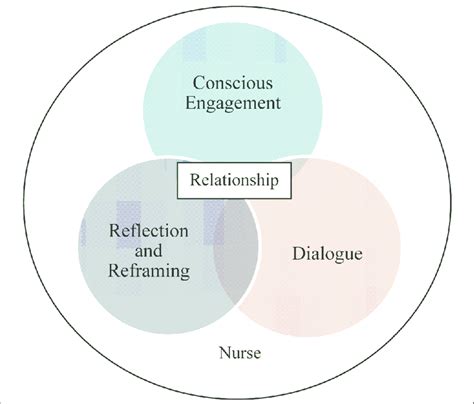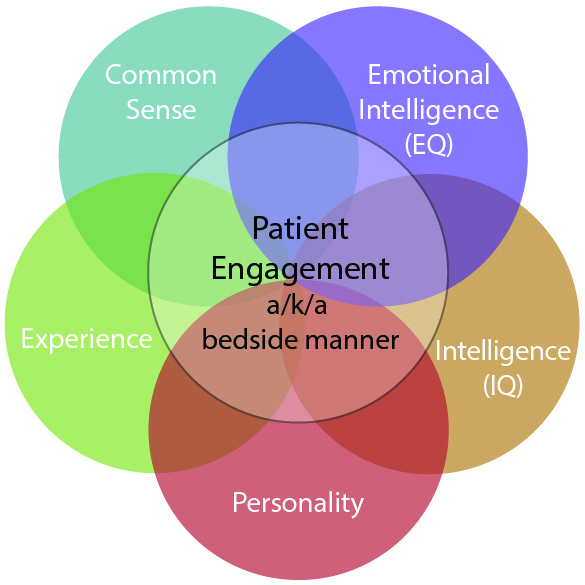Emotional intelligence (EI) is increasingly recognized as a vital skill in the healthcare sector, where professionals frequently navigate complex interactions with patients, families, and colleagues. Developing EI involves the ability to recognize, understand, and manage one’s own emotions and those of others, fostering empathy, communication, and effective decision-making. In healthcare, where emotions often run high, EI can enhance patient care, improve teamwork, and reduce stress. This article explores the concept of emotional intelligence, its importance in healthcare settings, and strategies for healthcare professionals to cultivate this critical skill, ultimately leading to more compassionate care and better outcomes for both patients and providers.
rosawblog.com will provide a detailed exploration of this topic.
1. Introduction
Emotional intelligence (EI) is gaining significant recognition as a crucial skill within the healthcare field. Healthcare professionals regularly encounter complex interactions with patients, their families, and colleagues. Cultivating EI involves the ability to perceive, comprehend, and regulate one’s own emotions, as well as those of others. This fosters empathy, effective communication, and sound decision-making. In healthcare, where emotions often escalate, EI can enhance patient care, strengthen teamwork, and mitigate stress. This article delves into the concept of emotional intelligence, its importance in healthcare settings, and strategies for healthcare professionals to develop this critical skill. By fostering EI, healthcare professionals can ultimately provide more compassionate care and achieve better outcomes for both patients and providers.

2. Understanding Emotional Intelligence
Emotional intelligence (EI) is gaining recognition as a crucial skill in healthcare. Healthcare professionals often encounter complex interactions with patients, families, and colleagues. Developing EI involves understanding and managing one’s own emotions and those of others. This fosters empathy, communication, and effective decision-making. In healthcare, where emotions can run high, EI can enhance patient care, improve teamwork, and reduce stress. This article examines the concept of emotional intelligence, its significance in healthcare settings, and strategies healthcare professionals can use to cultivate this vital skill. The goal is to achieve more compassionate care and better outcomes for both patients and providers.

3. Importance of Emotional Intelligence in Healthcare
Emotional intelligence (EI) is becoming increasingly important in the healthcare sector, where professionals constantly encounter complex interactions with patients, families, and colleagues. Developing EI requires the ability to identify, understand, and manage one’s own emotions and those of others. This skill fosters empathy, effective communication, and sound decision-making. In healthcare, where emotional intensity is high, EI can significantly enhance patient care, improve teamwork, and minimize stress. This article delves into the concept of emotional intelligence, its critical role in healthcare settings, and provides strategies for healthcare professionals to cultivate this essential skill. The ultimate goal is to achieve more compassionate care and better outcomes for both patients and providers.

4. Ways to Develop Emotional Intelligence in Healthcare Professionals
Emotional intelligence (EI) is becoming increasingly vital in the healthcare sector. Healthcare professionals constantly encounter complex interactions with patients, families, and colleagues. Developing EI means learning to recognize, understand, and manage both your own emotions and those of others. This fosters empathy, improves communication, and supports effective decision-making. In healthcare, where emotions often run high, EI can enhance patient care, improve teamwork, and reduce stress. This article explores the concept of emotional intelligence, its importance in healthcare settings, and strategies for healthcare professionals to cultivate this critical skill. Ultimately, this leads to more compassionate care and better outcomes for both patients and providers.
5. Case Studies and Examples
A compelling example of emotional intelligence (EI) in action within healthcare comes from a hospital that saw a dramatic rise in patient satisfaction scores following the implementation of an EI training program for its staff. This program emphasized the development of skills like empathy, active listening, and stress management. The result was a noticeable improvement in healthcare providers’ communication with patients, alongside a deeper understanding of their emotional and psychological needs. This, in turn, led to more personalized and effective care.
At a primary care clinic, a nurse practitioner with exceptional emotional intelligence effectively de-escalated a heated exchange with a frustrated patient. Through active listening and acknowledging the patient’s emotions, the nurse practitioner calmed the situation. This enabled a shift in focus towards finding a resolution, not only resolving the immediate issue but also fostering trust and rapport. As a result, patient loyalty increased, and the clinic benefitted from positive word-of-mouth recommendations.
In a separate instance, a surgical team significantly boosted their collective performance by cultivating emotional intelligence through consistent mindfulness exercises and communication workshops. This enhanced self-awareness and understanding of team dynamics enabled them to manage stress effectively and work more cohesively under pressure. The result was a notable reduction in surgical errors and
6. Benefits of Emotional Intelligence in Healthcare
Emotional intelligence (EI) plays a crucial role in healthcare, benefiting both individual professionals and the quality of patient care. One of the key advantages of EI is its enhancement of communication. Healthcare professionals with high EI possess the ability to understand and manage their own emotions, leading to more effective communication with patients and colleagues. This improved communication fosters empathy and a patient-centered approach, ultimately enhancing the patient experience and building trust and satisfaction.
Enhanced teamwork is another key benefit. In a high-stress environment like healthcare, the ability to manage interpersonal relationships and resolve conflicts is essential. Healthcare teams with high emotional intelligence tend to collaborate more effectively, leading to better decision-making, reduced errors, and improved patient outcomes. Moreover, EI helps in recognizing and addressing burnout among healthcare professionals by promoting self-awareness and stress management techniques, which can reduce turnover rates and improve overall staff morale.
Emotional intelligence is a crucial factor in patient safety. Healthcare professionals who are more aware of their own emotions and those of their patients can better understand and address patients’ emotional needs. This heightened sensitivity allows them to identify early signs of distress or non-compliance, enabling proactive interventions. By taking a proactive approach, complications can be prevented, recovery can be enhanced, and positive health outcomes can be achieved. This ultimately creates a safer and more supportive healthcare environment for all.
7. Conclusion
Emotional intelligence (EI) is a crucial skill in healthcare, influencing both the quality of patient care and the well-being of healthcare professionals. As demonstrated through case studies and examples, developing EI can lead to improved communication, stronger teamwork, and ultimately, better patient outcomes. By understanding and effectively managing their own emotions, as well as those of others, healthcare professionals can cultivate a more empathetic, patient-centered approach. This not only strengthens patient relationships but also fosters a more cohesive and supportive work environment, which is vital in high-stress settings.
Emotional intelligence (EI) proves beneficial in healthcare beyond simply improving patient interactions. It equips healthcare workers with the tools to manage stress, prevent burnout, and boost job satisfaction. Furthermore, emotionally intelligent healthcare teams demonstrate enhanced conflict resolution abilities, collaborative decision-making skills, and a heightened commitment to patient safety. As the healthcare landscape continues to transform, the significance of EI will likely increase, underscoring its crucial role in delivering compassionate and effective patient care.
In conclusion, investing in emotional intelligence (EI) within healthcare settings is essential for enhancing patient care and cultivating a positive work environment. By placing a high value on EI, healthcare organizations can establish a culture that promotes the well-being of both patients and providers. This, in turn, contributes to improved healthcare experiences and outcomes for everyone.
rosawblog.com
